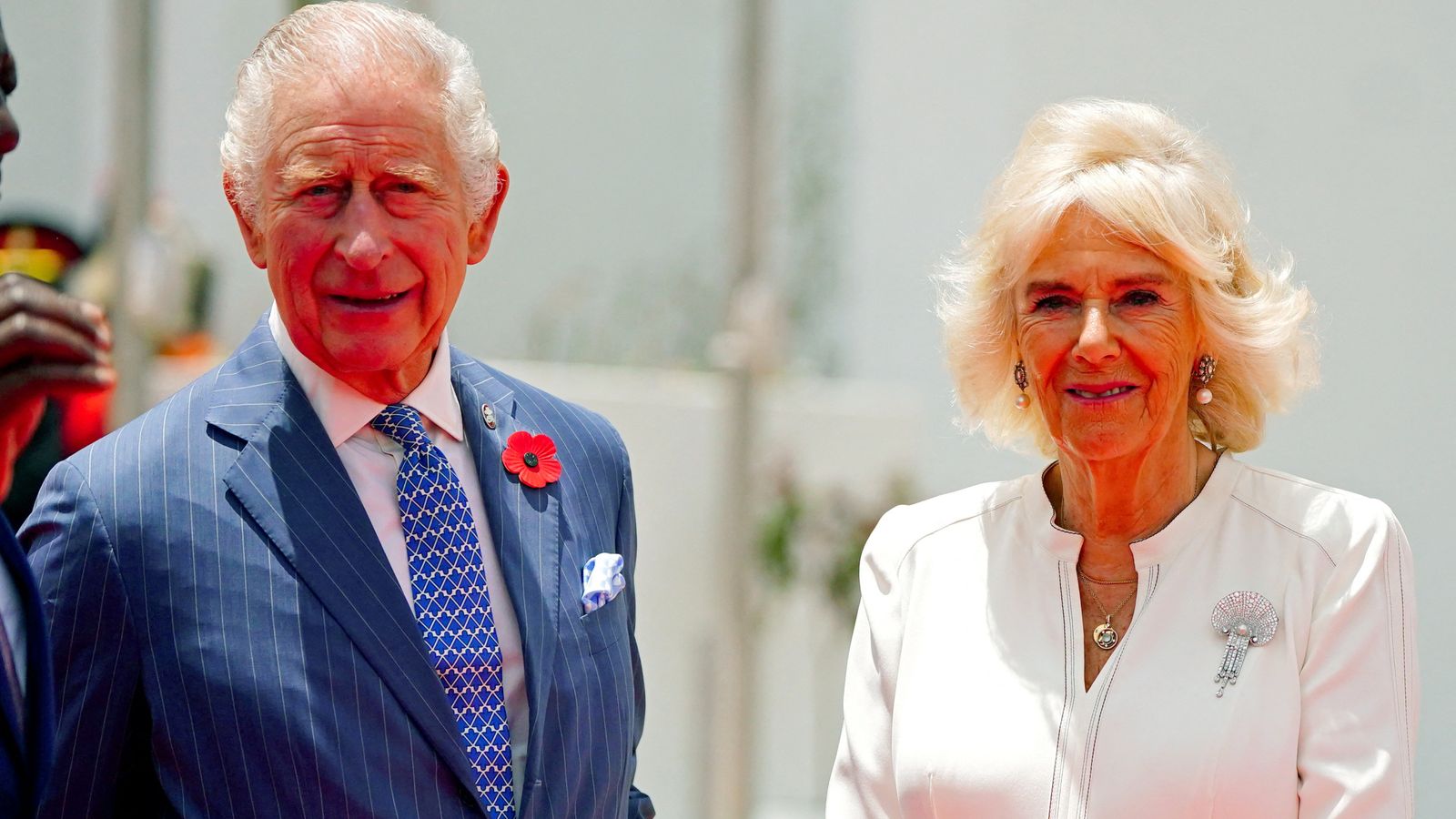The King and Queen have begun a four-day state visit to Kenya, which could be eclipsed by calls for an apology over abuses during British colonial rule.
The royal couple were welcomed by President William Ruto and the first lady at the State House in Nairobi.
The King will deliver a significant speech at a state banquet to address the “more painful aspects” of Kenyan-British relations, namely the Mau Mau uprising.
In the 1950s Mau Mau fighters in Kenya began a campaign to end British rule. Atrocities were committed on both sides, but the Mau Mau insurgents suffered significant mistreatment.
Ninety thousand Kenyans were murdered, tortured or maimed, with many held in detention camps.
A decade ago the British government expressed regret and paid out nearly £20m in compensation, but ministers never apologised.
Ahead of his visit, there have been renewed calls for the King to make a formal apology from the Kenyan Human Rights Commission, who have requested an “unequivocal public apology”, and those whose relatives suffered abuse.
One of the challenges facing the King is how to recognise historic wrongs committed under British rule.
Many Kenyans will be listening carefully to his speech and how far he goes to address the issue.
Despite a rainy arrival, the King laid a wreath at the tomb of the unknown soldier, before viewing a sacred mugomo fig tree planted on the spot the British flag was last raised.
This year marks the 60th anniversary of Kenyan independence.
Despite the troubles of the past, Kenya and Britain have maintained a close relationship. Kenya is also an important ally in a troubled region.
The UK government is keen for this trip to focus on friendship and future relations. But many Kenyans believe the past must also be properly addressed.
The King’s deputy private secretary, Chris Fitzgerald, previously said the visit will “acknowledge more painful aspects of the United Kingdom and Kenya’s shared history”.
He added the King will “take time to deepen his understanding of the wrongs suffered in this period by people”.








